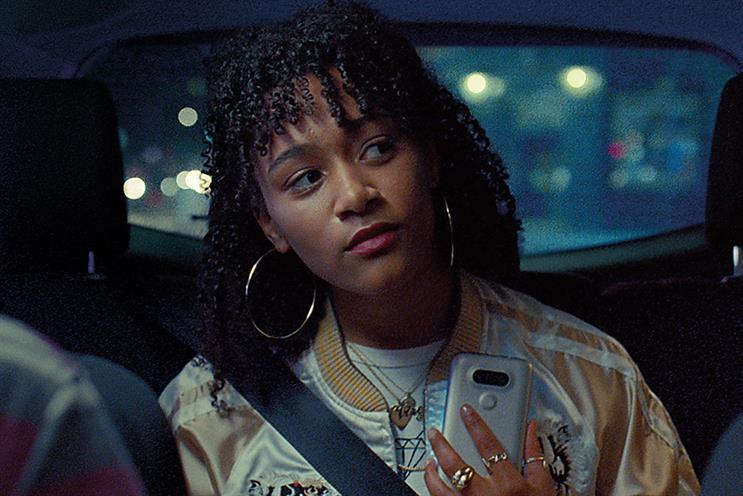"Right now, somebody is somewhere trying to disrupt financial services."
This was the title of a slide shown at a recent conference I attended. Beneath this headline were images of Silicon Valley’s most heroic disruptors: Google’s Sergey Brin, Amazon’s Jeff Bezos, PayPal and Tesla’s Elon Musk and Uber’s Travis Kalanick.
Leaving aside the race and gender issues this slide encapsulated (significant as they are), I was struck by another thought: Kalanick? Really?
Kalanick is no hero of digital disruption. I am glad he has been forced to resign. In fact, I think Uber, the company he led until recently, should be shut down too. Uber is everything that is wrong with disruption and globalisation.
Silicon Valley is still humming with the news that, following revelations of sexually harassed staff, mistreated drivers and dodged regulators, Kalanick was forced to resign as chief executive of Uber last month.
Indeed, there were so many scandals at Uber that there is even a website committed to the subject – uberscandals.org.
Kalanick was clearly responsible for the company’s decisions and practices. But now he is gone, Uber can install a more ethical chief executive and things can go back to normal. Hey, maybe it can even appoint a woman this time and then things would be much better, right? Wrong.
The company’s cultural dysfunction isn’t a bug, it’s a feature: it is baked into the business model.
Uber’s business model is predicated not on technological disruption but on breaking rules. And, having grown through skirting regulation, it doesn’t matter who you put in charge now – Uber ain’t gonna change.
When Uber arrived in the UK in 2012, just before the London Olympics, it had already achieved some smart stuff. It had recognised that expensive taxi medallions were unnecessary for pre-booked trips, it had used smartphone apps to let passengers request vehicles and it had found cost savings in equipping drivers with standard phones rather than specialised hardware.
But, as others have noted, those innovations could easily be copied – and were certainly not enough to float a global business.
Uber’s big advantage was using private cars. That way, it could avoid commercial insurance, commercial registration, commercial plates, special driver’s licences, background checks, rigorous commercial vehicle inspections and countless other expenses. As a result, Uber could substantially undercut other cabbies. Bingo, a global "digitally disruptive" business was born!
Next, Uber developed a series of additional innovations designed to buttress the rule-breaking on which its business was built.
Staff procedures and software were all developed to mobilise passengers and drivers to lobby regulators and legislators – creating political pressure for anyone who dared to question Uber’s approach.
(You may recall that Boris Johnson, as mayor of London, considered clamping down on Uber in 2015 by imposing a minimum waiting time of five minutes on riders. Some 200,000 Londoners signed a petition in protest – maybe you were one of them – and he was told to back off.)
At the same time, Uber’s legal team approved the Greyball software. Uber describes Greyball as a program that "denies ride requests to users who are violating our terms of service", including "opponents who collude with officials on secret ‘stings’ meant to entrap drivers".
The whole edifice was built on rule-breaking. Whoever leads the company now will make no difference. Scandal will follow scandal until the whole sorry mess of Uber is shut down. The sooner the better, I say.
Before you call me a Luddite, know that of course I agree GPS technology has clearly outstripped the need for cab drivers to learn The Knowledge and so some level of disruption to the taxi business is inevitable and right. Why pay top dollar for knowledge that you can access for "free" on your smartphone?
But a business that sidesteps rules that others must follow isn’t fair competition. And, frankly, we’ve been here before.
Older readers will recall Napster, an innovative file-sharing platform that brought every song imaginable to a listener’s ears – all for no charge. Napster’s approach was grounded in illegality. The company’s brilliant innovations could never undo the intellectual property theft at the core of its business. The service was forced to close, but now we have iTunes, Pandora and Spotify – businesses that keep what was great about Napster while operating within copyright law.
And before you say "who cares?", know that this isn’t just about your Spotify playlist or cab ride home.
The New York Times has called the battle between Uber and London cabbies "less about the disruptive power of an app, or a new business model, than about the disruption of Britain".
Uber and Napster provide a lesson in digital disruption. They show how the rule-breaking allowed by technology cannot be a licence to destroy the livelihoods of those who adhere to the rules.
If we intend to cushion the forces of disruption and globalisation – and common sense suggests that might be a smart idea – then we have to balance innovation and regulation, and do it now.
If we don’t, it won’t just be London cabbies protesting in the streets. So, yeah, close Uber today.
Andy Pemberton is the director of Furthr


